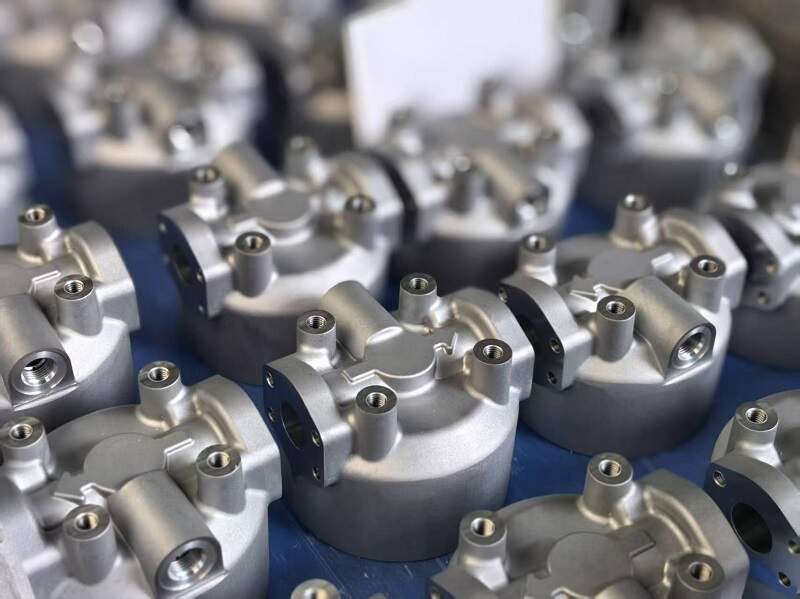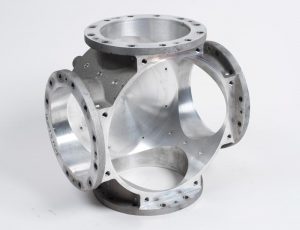A Comprehensive Overview to Choosing the Right Shop Solutions for Your Project Needs
Selecting the best foundry solutions is crucial for the success of any type of project. Each spreading method-- sand spreading, financial investment casting, and pass away casting-- has unique benefits. Understanding these alternatives assists in making educated decisions. Product choice, manufacturing capabilities, and top quality assurance are vital aspects to think about. In addition, examining costs can influence lasting feasibility. Aluminum Foundry. What aspects should guide this decision-making procedure?
Understanding the Various Types of Foundry Providers
While the globe of shop services may appear complicated in the beginning glimpse, comprehending the various types can considerably enhance the manufacturing process. Foundries generally specialize in casting metals, and the primary kinds include sand spreading, investment spreading, die casting, and centrifugal spreading.
Sand spreading entails creating molds from sand and is optimal for big elements or low-volume manufacturing. Financial investment spreading, on the various other hand, offers high precision for elaborate styles, making it appropriate for aerospace or clinical applications. Pass away spreading, identified by forcing molten metal into mold and mildews under high stress, is effective for mass manufacturing of smaller sized components.
Centrifugal spreading uses rotational pressure to distribute molten metal, generating solid, round parts. Each solution kind is and has unique advantages selected based on particular project demands. Comprehending these differences allows manufacturers to select one of the most ideal shop service, ultimately improving efficiency and product quality.
Trick Variables to Take Into Consideration in Product Choice
Choosing the appropriate material for factory solutions is a vital action that affects the general success of a project. Trick variables in material choice consist of mechanical residential or commercial properties, thermal resistance, and corrosion resistance - aluminum casting. Understanding the designated application and its needs is vital; products need to withstand operational anxieties while preserving stability over time
Another important consideration is the product's compatibility with the chosen production process, as some products are better matched for specific methods. Cost-effectiveness additionally plays a substantial role, as spending plan restrictions can restrict choices.

Availability and lead times of materials can affect job timelines, making it needed for task supervisors to assess these factors thoroughly. By meticulously reviewing these components, one can guarantee a more successful and efficient factory solution experience.
Examining Manufacturing Capacities and Technologies
Just how effectively a factory can satisfy job specs depends upon its production abilities and innovations. A complete analysis of these elements is important for project success. Production capabilities incorporate the shop's ability to manage varying project complexities, timelines, and sizes. Understanding the foundry's tools and equipment is vital, as modern technologies such as computer system numerical control (CNC) machining and advanced mold-making techniques can greatly boost precision and efficiency.
In addition, the factory's use innovative products and processes, such as 3D printing or shed foam casting, can use advantages regarding layout flexibility and cost-effectiveness. It is additionally crucial to assess the shop's capability to scale manufacturing, making sure that they can suit future increases sought after without endangering high quality. By thoroughly examining these factors, task managers can make enlightened decisions regarding which shop is finest matched to satisfy their specific production demands and technological assumptions.
Significance of Quality Control in Metal Spreading
Quality control stands as an important pillar in the metal spreading industry, review making sure that every part meets rigid specifications and requirements. This process entails systematic tracking and analysis of each stage of production, from preliminary layout to final assessment. Executing extensive quality control procedures boosts the integrity and performance of cast elements, lowering the likelihood of flaws that can endanger architectural integrity.
Furthermore, efficient high quality guarantee cultivates trust fund in between foundries and clients, as adherence to high criteria signifies dedication to quality. It additionally decreases pricey rework and hold-ups, enhancing manufacturing procedures. By determining prospective issues early, quality control not just safeguards completion item however likewise adds to constant improvement within the shop's operations. Inevitably, prioritizing quality control in metal spreading is vital for achieving customer contentment and preserving an affordable side in the market.
Reviewing Cost-Effectiveness and Budget Plan Restrictions
While traversing the intricacies of factory services, reviewing cost-effectiveness and spending plan restrictions emerges as an essential variable for services. Understanding the overall cost of ownership includes even more than simply the preliminary price; it needs an evaluation of long-term expenses, including products, labor, and functional efficiencies. Firms ought to ask for in-depth quotes that lay out all possible expenses, enabling a clearer contrast between various foundries.
In addition, organizations need to assess their certain project needs against spending plan limitations. This consists of evaluating the trade-offs in between lower expenses and possible impacts on quality, preparations, and reliability. It is crucial to take right into account whether the selected factory offers scalable services that can suit future needs without considerable monetary strain. By very carefully stabilizing price aspects with task goals, companies can make educated decisions that maximize both budget and efficiency, making certain effective results for their foundry tasks.
Regularly Asked Questions
How Can I Make Sure Prompt Distribution of My Shop Task?

What Accreditations Should a Foundry Service Provider Have?
A trusted shop company must have certifications such as ISO 9001 for website here top quality monitoring, ISO 14001 for environmental administration, and industry-specific certifications that demonstrate compliance with safety and security and performance criteria pertinent to the casting process.
Can I Check Out the Foundry Before Choosing?
Yes, visiting the foundry before making a decision is commonly recommended. This permits prospective clients to assess the center, satisfy the group, and guarantee that the services align with their particular task requirements and criteria.
What Is the Normal Preparation for Custom Castings?
The normal lead time for custom spreadings ranges from 4 to twelve weeks, relying on the complexity of the style, product specifications, and the shop's capability. Timely interaction can typically expedite the process.
Just How Do Foundries Take Care Of Design Modifications Throughout Production?
Factories generally suit design modifications throughout production by executing versatile procedures. They assess the effect on timelines and expenses, interact with customers, and adjust process to assure top quality while lessening interruptions to the production routine.
